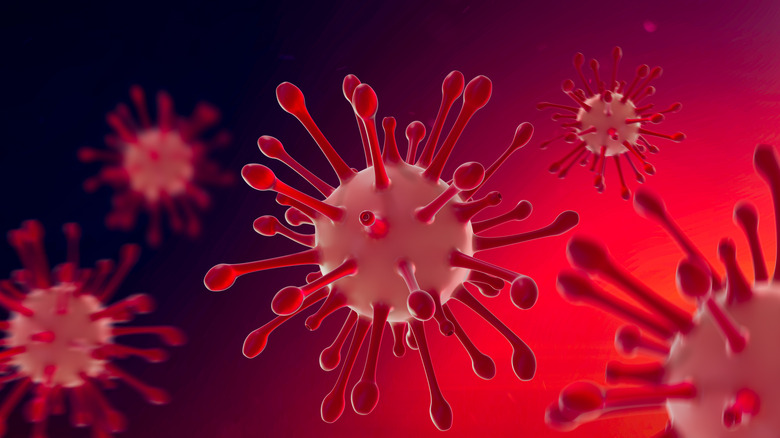Why The CDC Is Carefully Watching The Delta Plus Variant Of COVID-19
The Centers for Disease Control and Prevention (CDC) is carefully monitoring a new emerging strain of COVID-19 known as the Delta plus variant, according to CDC director Dr. Rochelle Walensky (via HuffPost). The new subvariant is an offshoot of the original Delta variant that was first identified in the United Kingdom.
Previously known as A.Y.4.2, the Delta plus variant of COVID-19 appears to be highly transmissible and is currently spreading throughout the U.K. While the new variant has become prevalent in the U.K., there have only been a handful cases in the United States so far, with the Delta plus variant accounting for only 0.1% of all COVID-19 cases in the U.S. "We absolutely are following the genomic sequencing of this very carefully," Dr. Walensky said on NBC's "Meet the Press" on Sunday, per HuffPost. "We have had a handful of cases here in the United States, but it has not taken off as it has in the U.K."
Is the Delta plus variant more transmissible?
While the Delta plus variant has not yet been classified as a "variant of concern" (via CDC), there is much that is still unknown about the new strain of COVID-19. That's why the CDC and other health agencies and officials are closely monitoring the emerging variant (via Healthline). However, there is still a chance that Delta plus could be more transmissible than the original Delta strain. According to Francois Balloux, the director of the Genetics Institute at University College London, the Delta plus variant could potentially be 10-15% more contagious than Delta. While further research is still needed, this would make Delta plus the most contagious strain of COVID-19 to date.
Fortunately, high transmissibility doesn't necessarily mean the strain is more deadly. "Well, transmissible does not mean more dangerous, doesn't mean more virulent," Dr. Len Horovitz, an internist and pulmonary specialist at Lenox Hill Hospital in New York, told Healthline. "Transmissibility does not equate with virulence. So we don't know if these cases will be more serious." Dr. Horovitz also confirmed that it is highly unlikely that the three available COVID-19 vaccines wouldn't work against the new variant. The mutation of the virus would need to be much more drastic in order for it to become vaccine-resistant.


